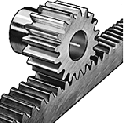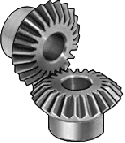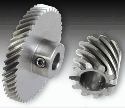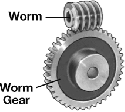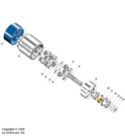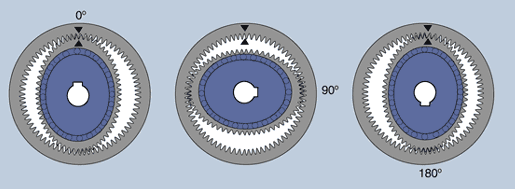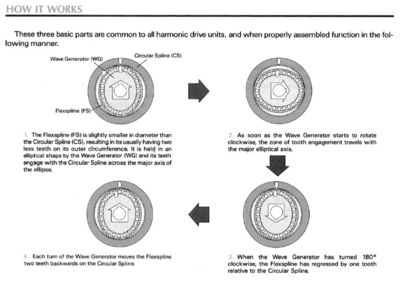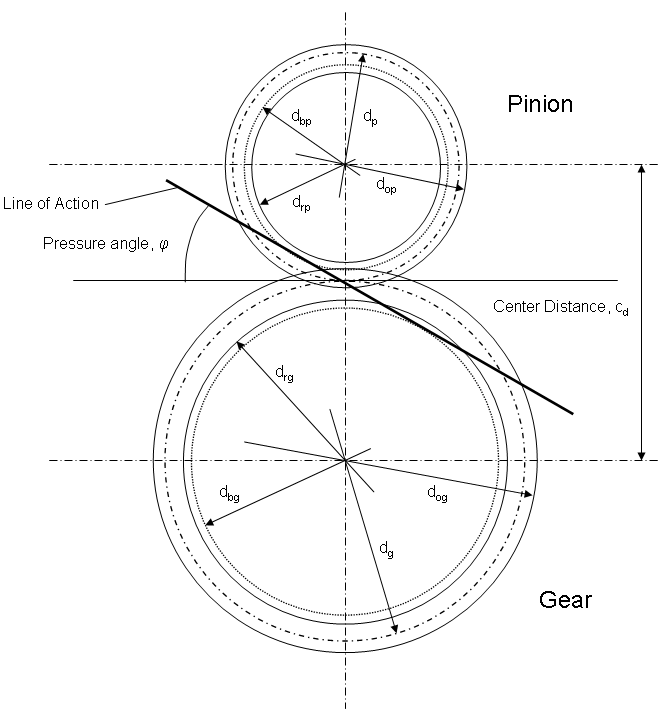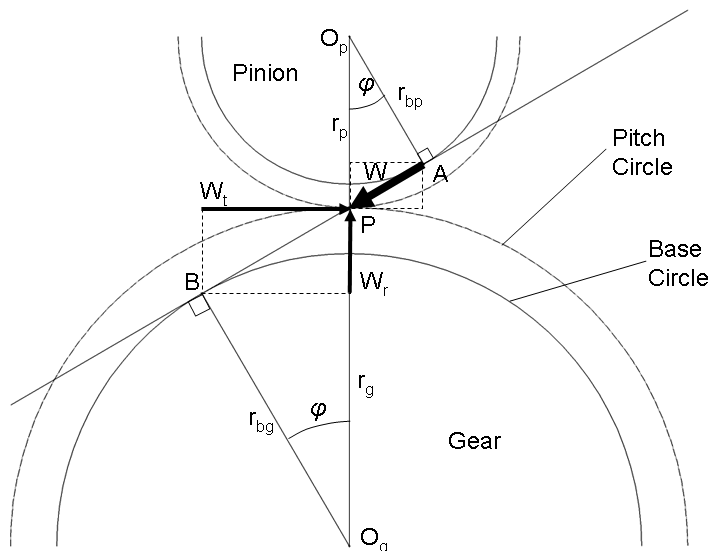Difference between revisions of "Gears"
From Mech
Jump to navigationJump to search| Line 1: | Line 1: | ||
==Types of Gears== |
==Types of Gears== |
||
| ⚫ | |||
{| align="center" |
{| align="center" |
||
! width="150px" | Spur Gears |
! width="150px" | Spur Gears |
||
| Line 21: | Line 22: | ||
| [[image:harmonic gears.jpg|400px|center]] |
| [[image:harmonic gears.jpg|400px|center]] |
||
|} |
|} |
||
| ⚫ | |||
| ⚫ | |||
===Spur Gears=== |
===Spur Gears=== |
||
| Line 91: | Line 92: | ||
<br clear=all> |
<br clear=all> |
||
| ⚫ | |||
==Gear Geometry== |
==Gear Geometry== |
||
Revision as of 12:57, 27 December 2006
Types of Gears
Spur Gears
Rack and Pinion
Bevel Gears
Helical Gears
Worm Drives
Planetary Gears
Ball Screw
Harmonic Drive Gears
Gear Geometry
For external spur gears (most common), the gear geometry is as shown in the figure below. The line of action is the line that passes through the intersection of the pitch circles and also tangent to the base circles.
Gear Meshing and Forces
Gear meshing results in contacts with normals along the line of action, so the resultant force, is along this line. This results in both tangential and radial forces, and , on the gear pair. When these gears are mounted on a shaft, the radial force causes a bending moment while the tangent force causes both a bending moment and a torque.
References
- Stock Drive Products/Sterling Instrument, http://www.sdp-si.com
- McMaster-Carr, http://www.mcmaster.com
- Harmonic Drive, LLC, http://www.harmonic-drive.com

